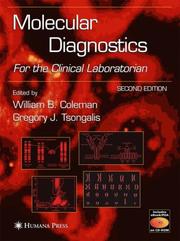| Listing 1 - 10 of 12 | << page >> |
Sort by
|
Book
ISSN: 19137494 ISBN: 1283245612 9786613245618 0774820195 9780774820196 9781283245616 9780774820172 0774820179 9780774820189 9780774820202 0774820187 Year: 2011 Publisher: Vancouver UBC Press
Abstract | Keywords | Export | Availability | Bookmark
 Loading...
Loading...Choose an application
- Reference Manager
- EndNote
- RefWorks (Direct export to RefWorks)
Autonomy. --- Law and globalization. --- Globalization --- Intellectual property. --- Indigenous peoples --- Intellectual property --- IP (Intellectual property) --- Proprietary rights --- Rights, Proprietary --- Intangible property --- Independence --- Self-government --- International law --- Political science --- Sovereignty --- Globalization and law --- Global cities --- Globalisation --- Internationalization --- International relations --- Anti-globalization movement --- Political aspects. --- Land tenure. --- Law and legislation --- Law and globalization --- Autonomy --- Political aspects --- Land tenure --- Ethnology --- Globalization - Political aspects --- Indigenous peoples - Land tenure
Book
Year: 2017 Publisher: Amsterdam, [Netherlands] : Elsevier,
Abstract | Keywords | Export | Availability | Bookmark
 Loading...
Loading...Choose an application
- Reference Manager
- EndNote
- RefWorks (Direct export to RefWorks)
Pathology, Molecular. --- Pathology, Molecular --- Molecular Diagnostic Techniques.

ISBN: 0415162483 0415162475 1134716273 1280330074 0203058356 1134716257 Year: 1998 Publisher: London Routledge
Abstract | Keywords | Export | Availability | Bookmark
 Loading...
Loading...Choose an application
- Reference Manager
- EndNote
- RefWorks (Direct export to RefWorks)
This scholarly and interdisciplinary volume sheds much needed light on the realtionship between national policies, regional integration patterns and the wider global setting. It covers regional patterns in Europe, Asia and the Americas. Individual chapters focus on topics ranging from industrial or financial policies to social welfare regimes, as well as broader assessments and comparisons of regional arrangements in a global context. The chapters point to the diversity of regional patterns in the world economy and the continuing importance of national regulatory structures, yet they also poin
International economic relations --- North American Free Trade Agreement --- Asia-Pacific Economic Cooperation --- European Union --- AA / International- internationaal --- 331.00 --- 382.52 --- 382.11 --- Economische bewegingen: algemeenheden. --- Handelsakkoorden. Driehoekshandel. Bilateralisme. --- Theorie van het internationale evenwicht. Economische onafhankelijkheid van een natie. Globalisering. Mondialisering. --- International economic integration. --- International economic relations. --- International relations. --- Regionalism. --- Coexistence --- Foreign affairs --- Foreign policy --- Foreign relations --- Global governance --- Interdependence of nations --- International affairs --- Peaceful coexistence --- World order --- Economic policy, Foreign --- Economic relations, Foreign --- Economics, International --- Foreign economic policy --- Foreign economic relations --- International economic policy --- International economics --- New international economic order --- Common markets --- Economic integration, International --- Economic union --- Integration, International economic --- Markets, Common --- Union, Economic --- International economic integration --- International relations --- Regionalism --- Human geography --- Nationalism --- Interregionalism --- National security --- Sovereignty --- World politics --- Economic policy --- Economic sanctions --- Economische bewegingen: algemeenheden --- Theorie van het internationale evenwicht. Economische onafhankelijkheid van een natie. Globalisering. Mondialisering --- Handelsakkoorden. Driehoekshandel. Bilateralisme

ISBN: 1588293564 9786610359042 1280359048 1592599281 Year: 2006 Publisher: Humana Press : Totowa, N. J.,
Abstract | Keywords | Export | Availability | Bookmark
 Loading...
Loading...Choose an application
- Reference Manager
- EndNote
- RefWorks (Direct export to RefWorks)
Taking advantage of the many major advances that have occurred since their groundbreaking first edition was published, William B. Coleman and Gregory J. Tsongalis have updated and expanded their highly praised tutorial guide to molecular diagnostic techniques to include not only improved traditional methods, but also totally new molecular technologies, some not yet in routine use. The authors offer cutting-edge molecular diagnostics for genetic disease, human cancers, infectious diseases, and identity testing, as well as new insights into the question of quality assurance in the molecular diagnostics laboratory. Additional chapters address other technologies found in the clinical laboratory that are complementary to molecular diagnostic methodologies, and also discuss genetic counseling and the ethical and social issues involved with nucleic acid testing. Authoritative and state-of-the-art, Molecular Diagnostics: For the Clinical Laboratorian, 2nd Edition is the essential textbook of choice for anyone working in molecular diagnostics and who wants to remain current with this rapidly changing field.
Chemistry, Clinical -- Methods. --- Molecular diagnosis. --- Pathology, Molecular. --- Technology, Medical. --- Molecular diagnosis --- Pathology, Molecular --- Chemistry --- Investigative Techniques --- Biochemistry --- Genetics --- Technology --- Biology --- Biological Science Disciplines --- Technology, Industry, and Agriculture --- Analytical, Diagnostic and Therapeutic Techniques and Equipment --- Natural Science Disciplines --- Technology, Industry, Agriculture --- Disciplines and Occupations --- Genetic Techniques --- Molecular Biology --- Clinical Laboratory Techniques --- Biomedical Technology --- Chemistry, Clinical --- Medicine --- Health & Biological Sciences --- Pathology --- Molecular pathology --- Diagnosis --- Molecular diagnostics --- Molecular aspects --- Medicine. --- Human genetics. --- Laboratory medicine. --- Pathology. --- Microbiology. --- Medicine & Public Health. --- Laboratory Medicine. --- Human Genetics. --- Molecular biology --- Physiology, Pathological --- Medical laboratories. --- Microbial biology --- Microorganisms --- Heredity, Human --- Human biology --- Physical anthropology --- Diagnosis, Laboratory --- Health facilities --- Laboratories --- Disease (Pathology) --- Medical sciences --- Diseases --- Medicine, Preventive --- Clinical medicine --- Clinical pathology --- Diagnostic laboratory tests --- Laboratory diagnosis --- Laboratory medicine --- Medical laboratory diagnosis
Book
ISBN: 1934115185 1597454583 9781934115183 Year: 2017 Publisher: New York, NY : Springer New York : Imprint: Humana,
Abstract | Keywords | Export | Availability | Bookmark
 Loading...
Loading...Choose an application
- Reference Manager
- EndNote
- RefWorks (Direct export to RefWorks)
This book covers the concepts of molecular medicine and personalized medicine. Subsequent chapters cover the topics of genomics, transcriptomics, epigenomics, and proteomics, as the tools of molecular pathology and foundations of molecular medicine. These chapters are followed by a series of chapters that provide overviews of molecular medicine as applied broadly to neoplastic, genetic, and infectious diseases, as well as a chapter on molecular diagnostics. The volume concludes with a chapter that delves into the promise of molecular medicine in the personalized treatment of patients with complex diseases, along with a discussion of the challenges and obstacles to personalized patient care. The Molecular Basis of Human Cancer, Second Edition, is a valuable resource for oncologists, researchers, and all medical professionals who work with cancer.
Molecular carcinogenesis --- Medicine. --- Oncology. --- Medicine & Public Health. --- Carcinogenesis --- Cancer --- Mutation (Biology) --- Molecular aspects. --- Genetic aspects. --- Genetics --- Variation (Biology) --- Cancer genetics --- Cancer genes --- Pathology, Molecular --- Oncology . --- Tumors

ISBN: 0415220750 113459951X 9786612372902 020318341X 0203274571 0429229356 1134599528 9780203274576 9781134716272 1134716273 9781134716289 1134716281 9780203058350 0203058356 9781134716234 9780415162470 9780415162487 1282372904 Year: 2002 Publisher: London New York Routledge
Abstract | Keywords | Export | Availability | Bookmark
 Loading...
Loading...Choose an application
- Reference Manager
- EndNote
- RefWorks (Direct export to RefWorks)
This volume brings together articles on three primary elements of globalization: multilateralism, regionalism and unilateralism. Expert contributors investigate the substantive issues of commodity and factor trade, capital movements and monetary and fiscal policies, from both theoretical and empirical perspectives.
339 --- 339.96 --- Globalization --- International economic integration --- International trade --- Regionalism --- Human geography --- Nationalism --- Interregionalism --- External trade --- Foreign commerce --- Foreign trade --- Global commerce --- Global trade --- Trade, International --- World trade --- Commerce --- International economic relations --- Non-traded goods --- Common markets --- Economic integration, International --- Economic union --- Global cities --- Globalisation --- Internationalization --- International relations --- Anti-globalization movement --- 339.96 Ontwikkelingshulp. Ontwikkelingssamenwerking. Ontwikkelingsproblematiek --- Ontwikkelingshulp. Ontwikkelingssamenwerking. Ontwikkelingsproblematiek --- 339 Handel. Internationale economische betrekkingen. Wereldeconomie --binnenlandse als buitenlandse handel zie ook {339.3} en {339.5} --- Handel. Internationale economische betrekkingen. Wereldeconomie --binnenlandse als buitenlandse handel zie ook {339.3} en {339.5} --- Integration, International economic --- Markets, Common --- Union, Economic --- 339 Handel. Internationale economische betrekkingen. Wereldeconomie --binnenlandse als buitenlandse handel; zie ook {339.3} en {339.5} --- Handel. Internationale economische betrekkingen. Wereldeconomie --binnenlandse als buitenlandse handel; zie ook {339.3} en {339.5} --- International economic integration. --- International trade. --- Regionalism. --- Globalization.
Book
ISBN: 0128027878 0128027614 9780128027875 9780128027615 1351091670 Year: 2018 Publisher: London, United Kingdom
Abstract | Keywords | Export | Availability | Bookmark
 Loading...
Loading...Choose an application
- Reference Manager
- EndNote
- RefWorks (Direct export to RefWorks)
As the molecular basis of human disease becomes better characterized, and the implications for understanding the molecular basis of disease becomes realized through improved diagnostics and treatment, Molecular Pathology, Second Edition stands out as the most comprehensive textbook where molecular mechanisms represent the focus. It is uniquely concerned with the molecular basis of major human diseases and disease processes, presented in the context of traditional pathology, with implications for translational molecular medicine. The Second Edition of Molecular Pathology has been thoroughly updated to reflect seven years of exponential changes in the fields of genetics, molecular, and cell biology which molecular pathology translates in the practice of molecular medicine. The textbook is intended to serve as a multi-use textbook that would be appropriate as a classroom teaching tool for biomedical graduate students, medical students, allied health students, and others (such as advanced undergraduates). Further, this textbook will be valuable for pathology residents and other postdoctoral fellows that desire to advance their understanding of molecular mechanisms of disease beyond what they learned in medical/graduate school. In addition, this textbook is useful as a reference book for practicing basic scientists and physician scientists that perform disease-related basic science and translational research, who require a ready information resource on the molecular basis of various human diseases and disease states. Explores the principles and practice of molecular pathology: molecular pathogenesis, molecular mechanisms of disease, and how the molecular pathogenesis of disease parallels the evolution of the disease. Explains the practice of "molecular medicine" and the translational aspects of molecular pathology Teaches from the perspective of "integrative systems biology".
Pathology, Molecular. --- Molecular biology. --- Molecular biochemistry --- Molecular biophysics --- Biochemistry --- Biophysics --- Biomolecules --- Systems biology --- Molecular pathology --- Molecular biology --- Physiology, Pathological
Book
ISBN: 1920942491 1920942505 9781920942502 9781920942496 Year: 2006 Publisher: Canberra ANU Press
Abstract | Keywords | Export | Availability | Bookmark
 Loading...
Loading...Choose an application
- Reference Manager
- EndNote
- RefWorks (Direct export to RefWorks)
This book tells the story of four men - L.F.Giblin, J.B. Brigden, D.B.Copland, and Roland Wilson - who, in 1920s Tasmania, formed a personal and intellectual bond that was to prove a pivot of economic thought, policy-making and institution-building in mid-century Australia.
Economists --- Social scientists --- australia --- economists --- John Maynard Keynes
Book
ISBN: 9780128229934 0128229934 0128228245 Year: 2024 Publisher: London, England : Academic Press,
Abstract | Keywords | Export | Availability | Bookmark
 Loading...
Loading...Choose an application
- Reference Manager
- EndNote
- RefWorks (Direct export to RefWorks)
Molecular diagnosis. --- Pathology, Molecular. --- Pathology, Molecular --- Molecular Diagnostic Techniques --- Precision Medicine
Book
ISBN: 1283335506 9786613335500 0774817615 9780774817615 9781283335508 9780774817608 0774817607 9780774817592 0774817593 Year: 2010 Publisher: Vancouver, BC
Abstract | Keywords | Export | Availability | Bookmark
 Loading...
Loading...Choose an application
- Reference Manager
- EndNote
- RefWorks (Direct export to RefWorks)
Globalization has challenged concepts such as local culture and cultural autonomy. And the rampant commodification of cultural products has challenged the way we define culture itself. Have these developments transformed the relationship between culture and autonomy? Have traditional notions of cultural autonomy been recast? Cultural Autonomy showcases the work of scholars who are exploring new ways of understanding the critical issue of globalization and culture. By defining culture broadly � as a set of ideas or practices that range from skateboarding to the work of public intellectuals such as Edward Said � they trace how issues of cultural autonomy have played out in various areas, including the human rights and environmental movements and among indigenous peoples. Although the contributors focus on the marginalized issue of autonomy, they offer a balanced perspective � one that reveals that globalization has not only limited but also created new forms of cultural autonomy.
Culture and globalization. --- Politics and culture. --- Autonomy.
| Listing 1 - 10 of 12 | << page >> |
Sort by
|

 Search
Search Feedback
Feedback About UniCat
About UniCat  Help
Help News
News